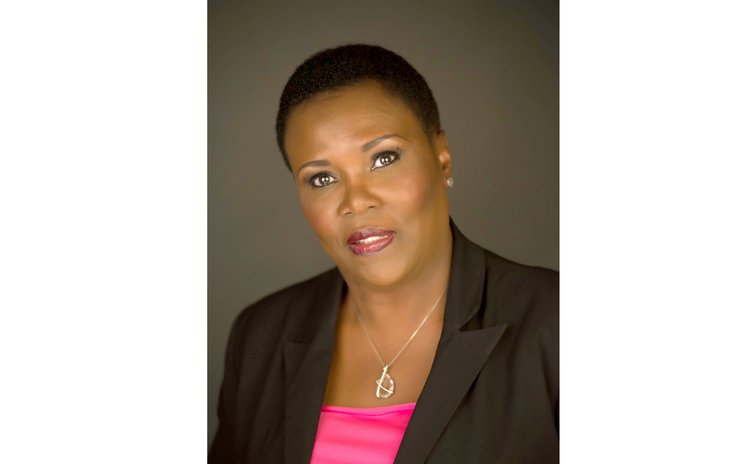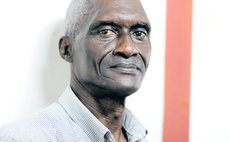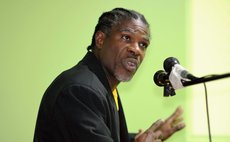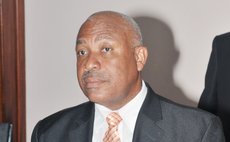Payment of a Black Debt: Making a New Case for Caribbean Reparation.
By Rebecca Theodore

On the other side of the colonial divide lies a renewed awareness. It is a redefined reality that signals the bitterness of past atrocities of European colonizers against Caribbean people of African descent and their ancestors. Its depths of cultural realisation cannot be forgotten or thrown into the dustbins of history. Reparation for Caribbean people of African descent must now be given international recognition.
It follows that if issues of social justice, equity, civil and human rights, education, and cultural identity are the universal themes that transcend thought and reasoning in our modern technological age, then, it is imperative that Caribbean people of African descent be compensated for the genocide perpetrated against them and their ancestors. The current underdevelopment and high rate of illiteracy that are now engulfing Caribbean communities cannot continue to be listed as a mere scholarly abstraction.
In essence, Caribbean people of African descent need to strengthen its public health, education and cultural institutions. Slavery contributed a fixed, negative legacy of organizational racism which has led to underdevelopment and underinvestment in the Caribbean.
And thus is unleashed a demographic revolution that is presently mirroring social, economic and political consequences in the Caribbean. According to Caribbean historian Sir Hilary Beckles, "the third world is still feeling the effects of the inhumane exploitation of people in their homelands and these peoples clearly deserve compensation for the horrendous crimes committed against their ancestors."
More to the point, "Caribbean people of African descent are suffering on many levels of their social livelihood. The lives of poor communities in the Caribbean are still devastated by the after-effects of slavery."
Given these circumstances, the Inter-American Development bank stresses that more than US$1.8 billion is now needed to end poor housing conditions currently endured by 1 million residents in the Bahamas, Barbados, Dominica, Guyana, Jamaica, Suriname, and Trinidad and Tobago. This means in order to achieve the new Sustainable Development Goals (SDG's) set out by the United Nations, coupled with the poverty alleviation, economic development, and climate resilience that the Caribbean presently faces, then, a new case must be made for reparations of Caribbean people of African descent if they are to be counted within the ranks of the brotherhood of all humanity.
Truthfully, Caribbean people of African descent must rebuild their sense of history and identity and economic wellbeing.
But how did all of this come about?
History documents that the transatlantic slave trade was responsible for the forced migration of between 12 - 15 million people from Africa to the Western Hemisphere from the middle of the 15th century to the end of the 19th century. All the major European powers were involved in this enterprise, but by the early 18th century, Britain became the world's leading slave trading power. It's estimated that British ships were responsible for the forced transportation of at least 2-3 million Africans in that century.
The transatlantic slave trade, as professor Beckles further affirms was one where "English plantation owners, the clergy, political institutions and commercial players engaged together by dehumanizing Africans as nonhuman. Enslaved Africans were treated as property. European nations, especially Britain, benefitted enormously and unjustly. Slavery and special laws provided the basis for terror, assault, punishment, rape, exploitation and even forced reproduction, and ultimately death"
Indeed, "this left an unsavory legacy that has crippled the Caribbean countries' ability to develop at an acceptable rate…"
Hitherto, it was this inhumane crime of slavery that impacted the economic development of the modern world. It must be understood that it was this crime of slavery that gave birth to capitalism, and standardized maritime and commercial jurisprudence. It was this crime of slavery that gave birth to insurance companies, reformed and regulated Christianity, moral philosophy, and international law, and our tax system as we know it. It was this crime of slavery that strengthened urbanization, and brought about class formation in the developed world.
More significantly, it was the crime of slavery crime that financed the industrial revolution, thus birthing academia and all its enlightenment. It was the crime of slavery that lay the foundation for human trafficking which is now the most brazen and notorious crime of our modern society.
Clearly, if human trafficking is now considered a brutal curse of human society and a gross infringement of human rights and dignity, then, it stands to reason that "centuries of buying and selling human beings, of moving them across oceans and continents, treating humans as property, paying taxes on them, putting them to labor, making profit off of their reproduction, and using them as collateral and capital, now demand compensation."
In this regards, the corporate world cannot continue to build a fortune from the historical crime of human trafficking. Statistics show that great financial firms such as the Barings, Browns and Rothschild's have applauded this guilt thus continuing to enrich their coffers and domains.
How then can a civilized world speak of human trafficking as a crime when commodified human beings played a leading role in the emergence of its system of laws?
Elaborating further, the story of slavery of Caribbean people of African descent is not the fictitious accounts of Alex Haley 'Roots' or Tony Morrison's 'Beloved.' The story of slavery is one where millions of people in the Caribbean, the United States, Brazil and other countries in the Western Hemisphere, as well as elsewhere outside Africa were physically removed from their homelands, and are desperately seeking to preserve their culture and heritage in the face of mounting adversities. The story of slavery is a tangible one that amounts to a new African diaspora in the Caribbean.
In short, the story of slavery is a cruel institution that needs redress.
At this stage, the echoes of 'Rule Britannia, Britannia rule the waves' lies dormant in the Caribbean, yet , the recovered humanity of Caribbean people still reverberate a white colonial history and a burden of shame. This slanted infamy demands a ransom from pain and cannot be left to a bereft eternity.
Whereas cotton, sugar and tobacco are no longer the indispensable commodity of the age of our modern industry, the wounds of a dark and ugly past refuses to heal. The system of 16th century Europe that led to the conquest and plunder through which great wealth was derived urgently needs amends.
In the same way that "Westphalianism forgave the sins of the past," and became the new treaty of states in Europe, thus heralding a family of nations working together for the common good; and the Reformation changed the course of history through open protest against the perceived wrong doings by the Catholic church, a new case must be made for reparation for Caribbean people of African descent.
If history is the royal road to wisdom, and the moral science to grasp the essence of things, then true enlightenment can only come when the British Foreign office acknowledges the demand of Caribbean people of African descent for payment due to the transatlantic slave trade.
Progressively, the Community of Latin American and Caribbean States (CELAC), the Caribbean community (CARICOM) the Caribbean Court of Justice (CCJ) must begin new reparations discourse in the Caribbean.
For the obvious must rise anew.




